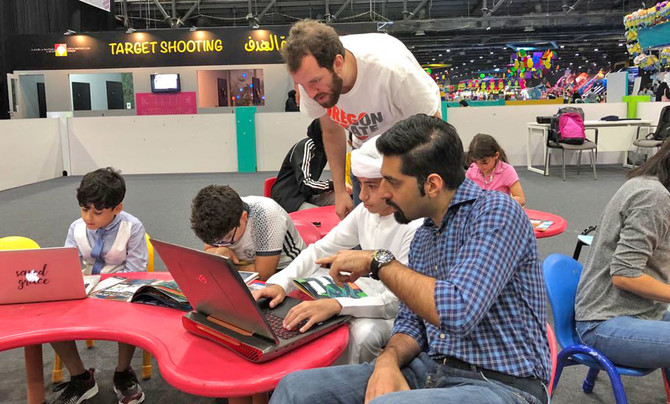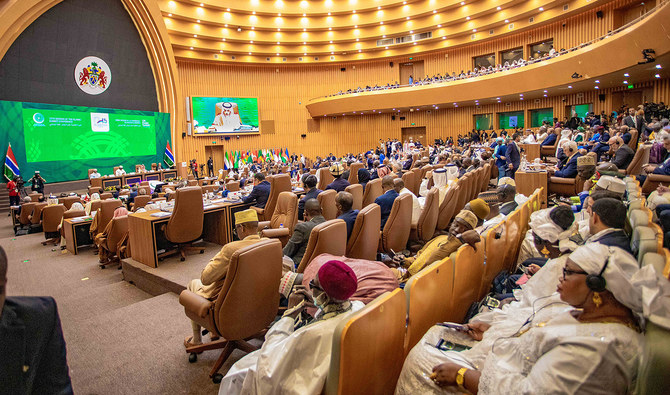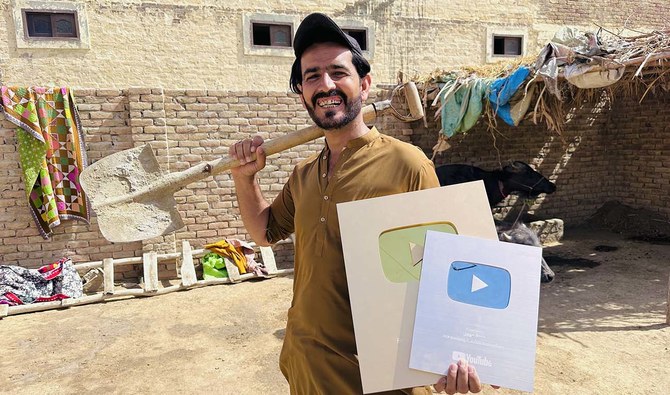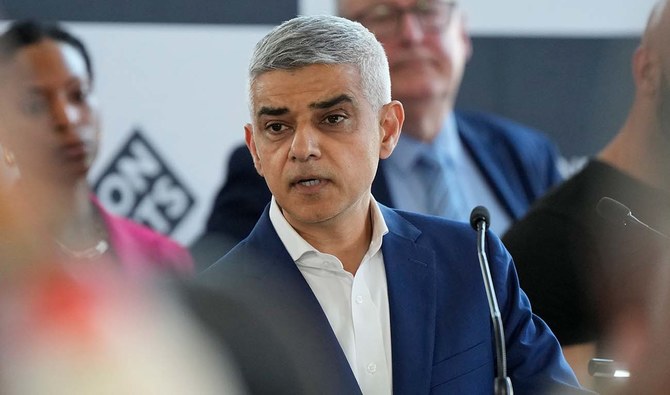DUBAI: Education, like charity, begins at home.
The adage couldn’t be truer for Omar Farooqui, a 42-year-old investment banker turned educator, who says he was taught a lesson at home by his 12-year-old son.
He says he turned the tables on his lucrative career and moved to education when he realized how unhappy his son was with the traditional system of schooling and the current present education system which was archaic and irrelevant for the children of today.
It was at that moment that he decided to adopt technological tools to inject some fresh blood into the educational sector. To realize his goals, Farooqui, who is based in Dubai, set up Coded Minds – an educational company that finds its roots in technology-based solutions.
As the founder and chief innovation officer of Coded Minds, he says he began his [global journey] with Pakistan to introduce new teaching methods from the grassroots to the university levels. For the purpose, he is in talks with several leading universities, school representatives, and government authorities to collaborate on several projects in Pakistan.
Speaking to Arab News, Farooqui said that the education system in Pakistan needed a total revamp. “Education in Pakistan is an extremely fragmented sector and one that needs a lot of re-organization. It is very much set in the old British colonial style which in itself is outdated. If you add to that a fragmented mix of American as well as Pakistan’s very own educational standards then you really do have a sector that needs to be re-organized from top to bottom,” Farooqui, a Saudi national said. He added that Pakistan holds a very special place in his heart because of his father who was originally from Pakistan. Azad Kashmir’s Muzaffarabad’s area and mother from Lahore.
Adding that the issue is not specific to Pakistan, but one that impacts the rest of the world too, Farooqui says the traditional education system is outdated globally. “It does not prepare the child for the real world. An over-reliance on theories and yearly examination leads to a system that gears itself only for college or university admissions and not for the actual, every day, practical life,” he said.
Farooqui believes that a technology-based system can help Pakistan attain new age education standards. “In fact, technology encourages cross schools collaborations, too,” he said.
Dr. Jawaid Laghari, former chairperson of the Higher Education Commission (HEC) concurs. Endorsing the fact that technology can play a major role in improving the quality of education and limiting the number of public school dropouts, he said: “Online free access through low-cost bandwidth and low -cost tablets would make a difference. Singapore is a model to emulate.”
Dr. Laghari added that the present public education system — both at the school and college levels — is unsatisfactory. “It is subject to bad management and corruption. We need to give at least one year to the present government if the reforms they would introduce will make a change,” he said.
According to Pakistan’s educational statistics from 2015 to 2016, 21 percent of primary schools in the country is being run by a single teacher while 14 percent have a single room. Additionally, in terms of the schools’ infrastructure, 40 percent of primary schools in the public sector operate without electricity, 28 percent do not have toilets, 25 percent are without boundary walls, while 29 percent have no access to drinking water. Seven percent of schools do not have any building and 43 percent have dilapidated buildings.
Farooqui is aware of these numbers. As he is of the fact that the low literacy rate has always remained a constant in Pakistan – a country which has barely witnessed an improvement or enhanced enrollment in the past couple of years. According to the Economic Survey of 2017-18, “last year, the literacy rate dropped by two percent from 60 to 58 percent. This year it has remained the same with no improvement”.
Farooqui believes that children opt to drop out of school either when the quality of education is unaffordable or of very poor quality. “Technology plays a heavy role in bridging the gap. In fact, it will not only help improve teaching standards but will improve individualized learning too, be it public or the private schools.
Aware of the hurdles that he might have to face along the way, Farooqui says he is all set for the battle.
“Change is the one thing that most human beings are afraid to do. We intend to partner up with local institutions and at the same time gather governmental support so we can take a top-down approach,” he said, adding that even though the education values in Pakistan are different from those of Saudi Arabia and the UAE, the basics are the same.
“It is the culture and traditions that make the difference. Majority of the battle that we face is about creating awareness as well as bringing change,” he said.
He added that the one-of-its-kind private collaboration with Saudi, in Pakistan’s education sector, will go a long way. “Saudi Arabia and Pakistan have always enjoyed long cordial brotherly relations and that will never change due to the strategic nature of both countries,” said Jeddah born educator.
“Saudi Arabia has always had private capital investment into Pakistan through partnerships and now more recently Saudi Arabia has committed to deploying capital as part of the CPEC. I am certainly hoping that through Coded Minds initiative, there will also now be a major inflow of capital into the education system of Pakistan not just through Saudi Arabia but even beyond that.”
“Change is the one thing that most human beings are afraid of”
“Change is the one thing that most human beings are afraid of”

- A Saudi national educator is asking people to fight their fears by encouraging an overhaul in Pakistan’s educational system
- Insists that the existent teaching methods are archaic and do not prepare a child for the real world
Top Afghan diplomat in India quits after $2 million gold smuggling reports

- Zakia Wardak was reportedly stopped last month on arrival at Mumbai airport, carrying 25 kilograms of gold
- The Afghan consul-general was not arrested because of her diplomatic immunity, but the gold was confiscated
NEW DELHI: Afghanistan’s top diplomat in India resigned days after she was reportedly caught by airport authorities smuggling nearly $2 million worth of gold into the country.
Zakia Wardak, the Afghan Consul-General in India’s financial capital Mumbai, posted a statement on social media platform X announcing her resignation.
Afghanistan’s embassy in New Delhi shut down in November, more than two years after the Taliban returned to power in Kabul following the collapse of the Western-backed government, leaving Wardak as the country’s most senior representative in India.
“It is with great regret that I announce my decision to step away from my role at the Consulate and Embassy in India, effective May 5, 2024,” Wardak said Saturday.
Indian media reports said Wardak was last month stopped by financial intelligence authorities at Mumbai airport on arrival from Dubai — along with her son — carrying 25 kilograms of gold.
She was not arrested because of her diplomatic immunity, the reports said, but the gold — worth around $1.9 million — was confiscated.
Wardak’s resignation leaves thousands of Afghan nationals, including students and businessmen, without any consular representation in India.
Most foreign nations — including India — do not officially recognize Afghanistan’s Taliban government, but acknowledge them as the de facto ruling authority.
In many Afghan missions, diplomats appointed by the former government have refused to cede control of embassy buildings and property to representatives of the Taliban authorities.
Wardak said in the statement that she had “encountered numerous personal attacks and defamation” over the past year.
Such incidents “have demonstrated the challenges faced by women in Afghan society,” she added, making no explicit reference to the gold allegations.
The Taliban authorities have full control of around a dozen Afghan embassies abroad — including in Pakistan, China, Turkiye and Iran.
Others operate on a hybrid system, with the ambassador gone but embassy staff still carrying out routine consular work such as issuing visas and other documents.
Most countries evacuated their missions from Kabul as the Taliban closed in on the Afghan capital in August 2021, although a handful of embassies — including Pakistan, China and Russia — never shut, and still have ambassadors in Kabul.
At OIC summit, Pakistan expresses concern over Israel’s ‘brutal’ military onslaught in Gaza

- Pakistan’s Deputy PM Ishaq Dar expresses full support for Palestine’s inclusion as a United Nations member
- Dar urges OIC member states at Banjul Summit to push for immediate and unconditional ceasefire in Palestine
ISLAMABAD: Pakistan’s Deputy Prime Minister and Foreign Minister Ishaq Dar on Sunday expressed his deep concern over Israel’s “brutal military onslaught” in the West Bank and Gaza, state-run media reported, calling for an immediate ceasefire in Palestine.
Dar was speaking at the Organization of Islamic Cooperation (OIC) summit being held against a backdrop of widespread anger over Israel’s military actions in Gaza. The Jewish state has killed nearly 35,000 Palestinians and caused massive destruction of hospitals, schools and residential neighborhoods in the densely populated area.
The Pakistani deputy prime minister arrived in Gambia on Wednesday to present his country’s perspective on a wide range of issues, including the war in Gaza and the rights situation in Indian-administered Kashmir.
“Deputy Prime Minister and Foreign Minister Senator Mohammad Ishaq Dar on Sunday expressed Pakistan’s deep concern over Israel’s ongoing brutal military onslaught against the Palestinian people in Gaza and the West Bank,” the state-run Associated Press of Pakistan (APP) reported.
“In the backdrop of the genocide of Palestinians and atrocities of Israeli forces, he urged the OIC Member States to work together for an immediate and unconditional ceasefire.”
Dar also expressed Pakistan’s support for Palestine’s admission as a full member of the UN, demanding the resumption of the process for a two-state solution in the Middle East.
The Pakistani deputy prime minister called for the creation of a viable, contiguous and sovereign state of Palestine based on the pre-1967 borders.
Dar also spoke on an uptick in Islamophobic sentiments and incidents in different parts of the world, particularly since the outset of Israel’s war in Gaza last year in October.
He urged the OIC to formulate a joint strategy to work with global social media platforms to harmonize their content regulation policies for blasphemous, anti-Islamic and Islamophobic content.
“Dar also strongly condemned the surge in anti-Pakistan rhetoric and Islamophobic narratives by India’s political leaders during the ongoing Lok Sabha elections which threatened the regional stability,” the APP said.
He urged the OIC to work collectively to address the existential threat of climate change, which caused catastrophic floods in Pakistan in 2022 that killed over 1,700 people and affected over 33 million in total.
Dar met The Gambia’s president and his counterparts from Turkiye and Azerbaijan to discuss enhancing bilateral trade and economic cooperation, Pakistan’s foreign ministry spokesperson said in a statement.
Pakistan to face India on Oct. 6 in women’s T20 World Cup clash

- ICC Women’s T20 World Cup to run from Oct. 3-20 in Dhaka and Sylhet
- Pakistan are placed in Group A with Australia, India, New Zealand, Qualifier 1
DHAKA: England will face South Africa in the opening match of the ICC Women’s Twenty20 World Cup to be held in Bangladesh later this year, the International Cricket Council announced on Sunday.
The event will run from October 3 to 20 in the capital Dhaka and the northeastern city of Sylhet, with warm-up matches starting on September 27.
Hosts Bangladesh and the top six teams from the previous edition in South Africa — Australia, England, New Zealand, South Africa and the West Indies — qualified automatically for the tournament, with Pakistan joining them as the next best ranked team.
Ireland, the UAE, Sri Lanka and Scotland are in contention for the remaining two places, with the semifinals of the qualifying tournament being held in the UAE.
Six-times winners and current world number one Australia will play in Group A alongside India, New Zealand, Pakistan and a Qualifier 1.
Neighbours and rivals India and Pakistan will face off on October 6.
Group B will feature South Africa, Bangladesh, England, West Indies, and Qualifier 2.
“Over the last six to seven years we have seen women’s cricket grow exponentially,” ICC chief executive officer Geoff Allardice said at the announcement of the fixture list and trophy unveiling in Dhaka.
“This is going to be a very special tournament,” he added.
It will be the ninth edition of the tournament, with Bangladesh previously hosting in 2014.
From bricks to clicks, Pakistani laborer achieves fame and financial independence via YouTube videos
From bricks to clicks, Pakistani laborer achieves fame and financial independence via YouTube videos

- Riaz Ali who built homes working as a manual laborer initially began making videos on TikTok
- 30-year-old made his YouTube channel in 2022 and has since become an online sensation
SANGHAR: Riaz Ali, 34, would stack brick over brick and bond them with mortar, a thick paste of cement, water and sand, as he built homes and did other manual labor work for years in the southern Pakistani district of Sanghar.
In 2022, he started making engaging video content that included throwing and catching mortar, targeting a tall pole with a motorbike tire and some prank videos, which have not only turned the daily wager into a millionaire but also a digital sensation.
Ali, better known as Riaz Jaan, initially posted videos on TikTok after which a friend advised him to post them on YouTube. He created his YouTube channel in April 2022 which was monetized only nine months later.
He now earns 20 times more than what he used to make two years ago.
“As a laborer, my wage was Rs1,500 [per day]. In a month, I used to earn Rs30,000 or Rs35,000 ($107-$125) as it was an inconsistent livelihood,” he told Arab News on Thursday.
“From YouTube, I earn more than Rs500,000 ($1,795) per month.”
Ali, who has 1.9 million subscribers on YouTube, 439,000 followers on TikTok and 359,000 on Facebook, says his content went viral through YouTube Shorts — vertical videos that have a duration of 60 seconds or less.
“My first earnings on YouTube were Rs800,000 ($2,872). I had never seen such a huge amount of money before. My family and I were so delighted that such a significant sum had come into my hands,” he said.
“After YouTube, my life changed. As they say, when Allah gives, He gives abundantly.”
Ali, who started working as a daily wager in 2010, has left his laboring job since becoming a digital sensation but still makes videos related to his former work.
He has also enabled the sharing of his viral videos on YouTube, helping several other content creators have engagement on their channels.
“There are people from various countries who repost my content and videos on their channels, and their channels have also been monetized,” he said. “I have granted them permission.”
This success has helped Ali buy two residential plots and two buffaloes, send his children to better schools, and take care of his family in a much better way. The 30-year-old has also bought a mobile phone worth Rs500,000, which he uses to create quality video content.
But Ali has not kept his success to himself and has passed his digital skills on to his family, friends and whoever he found willing to learn.
“Besides myself, my brother also has a YouTube channel where he posts labor-related videos. His channel has also been monetized,” he told Arab News.
“Additionally, I have two sons, Ali Ayan and Zeb Zohan, whose channel is also monetized.”
He says neither his brother’s nor his sons’ channels gained traction in the beginning and so, he began posting his content on their channels, which helped them gain momentum. Consequently, both channels were monetized.
The 30-year-old offers free, informal consultancy services to youth, who are interested in establishing their own YouTube channels, in his hometown of Jhol in Sanghar. He says he has around 50 to 60 youngsters, who either have monetized channels or are actively working toward them.
“I guide them all, and they follow my directions,” Ali said.
Ali Raza, a farmer and a friend of Ali, got inspired by seeing his friend earn through YouTube. Raza created his own account on the video-sharing website, where he posts funny videos.
“Since Riaz Jaan is teaching others, I also joined his group. It’s been four months since my YouTube channel has been monetized,” Ali Raza told Arab News.
“I earn between Rs25,000 and Rs30,000 ($89-$107) per month.”
Pakistan’s PM Sharif congratulates Sadiq Khan on winning third term as London mayor

- Sadiq Khan secured historic third term in office as London mayor on Saturday
- PM Sharif says Khan’s third victory reflects his dedication to public service
ISLAMABAD: Prime Minister Shehbaz Sharif congratulated London Mayor Sadiq Khan on Sunday for winning a third consecutive term in office, saying the landmark victory reflected the British-Pakistani official’s dedication to public service.
Khan, 53, who was first elected in May 2016, beat his Conservative rival Susan Hall by more than 276,000 votes, with his win representing a swing of 3.2 percent to the Labour party. He won nine of the 14 constituencies, results showed on Saturday.
Taking to social media platform X, Sharif offered his heartiest felicitations to Khan for his “hattrick” of victories.
“As a hard-working British Pakistani, he not only raised the head of his parents high but also made every Pakistani to rejoice his victory with pride,” Sharif wrote.
He offered Khan best wishes for his future success as mayor of London.
“The prime minister further said that his re-election for the third term also indicated his popularity and his devotion to public welfare,” the Pakistani prime minister wrote.
Khan, who replaced Boris Johnson as London mayor in 2016 and who has widespread policing and budget powers, has been an increasingly divisive figure in the past few years regardless of the facts for or against, particularly in the suburbs, where he fared worse than in the inner city.
His supporters say he has multiple achievements to his name, such as expanding housebuilding, free school meals for young children, keeping transport costs in check and generally backing London’s minority groups. His critics say he has overseen a crime surge, been anti-car and has unnecessarily allowed pro-Palestinian marches to become a regular feature at weekends.
With inputs from AP










